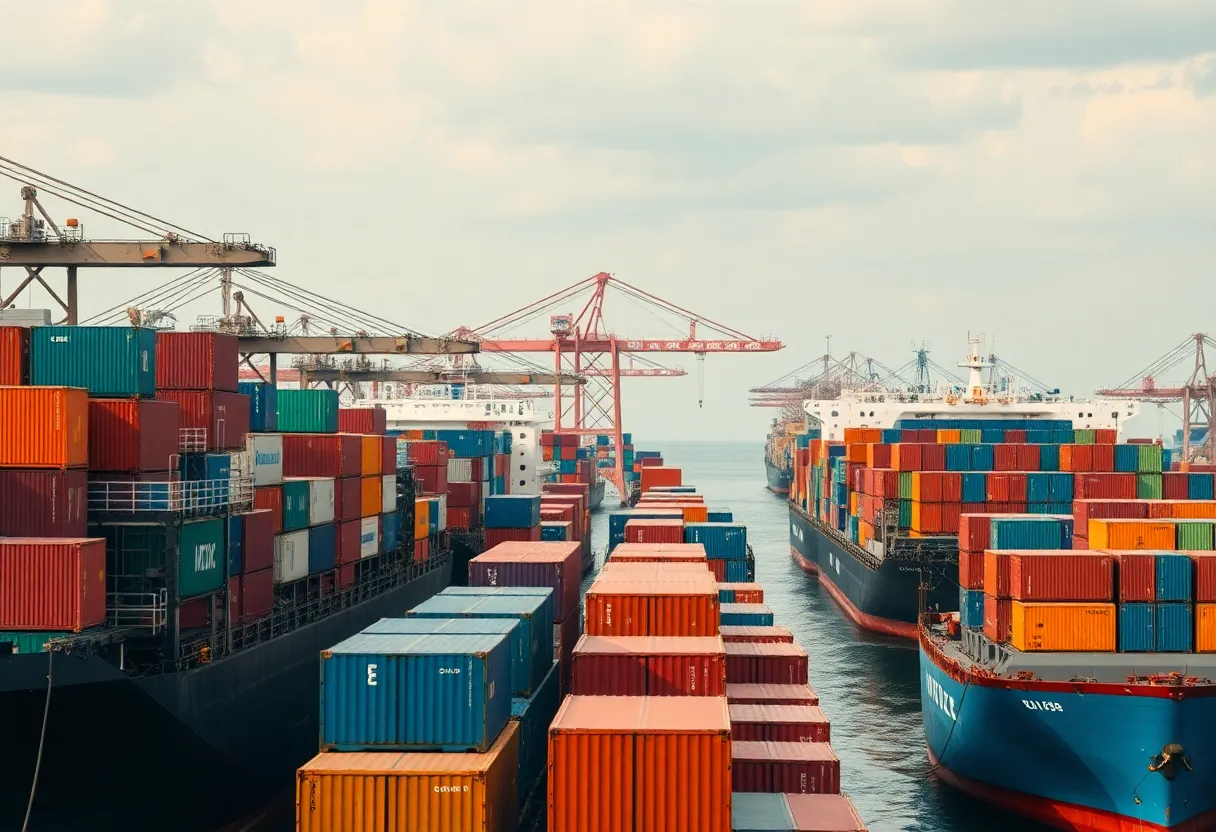News Summary
China’s recent trade warnings indicate a significant shift in global economic dynamics, as the nation becomes a more prominent trading partner than the US for many countries. Officials from China are cautioning nations against aligning with the US in trade agreements, threatening countermeasures for any compromise of its interests. The current US tariff negotiations further complicate the landscape, with many countries caught in the middle of escalating tensions between the two economic superpowers. As China’s influence grows, its role in global trade is increasingly crucial.
China’s Strong Trade Warnings Signal a Shift in Global Economic Dynamics
In the ever-changing landscape of global trade, China has been flexing its economic muscles, becoming a more significant trading partner for many countries than the United States. Recent developments indicate that this shift is making it a bit trickier for President Trump’s administration to impose its will on the international stage.
China’s Caution Against US Trade Agreements
Chinese officials have recently sounded the alarm, urging countries to think twice before entering into trade deals with the US that may compromise China’s interests. The words coming from China’s Ministry of Commerce have been clear: nations that align themselves with the US against China can expect robust countermeasures from Beijing. The message is straightforward — if you go against China’s interests, be prepared for some pushback.
US Tariff Negotiations in Full Swing
As the US negotiates tariff exemptions with over 70 countries, the situation is creating a tense atmosphere. Many countries are gearing up to strike deals to navigate the maze of tariffs that have been imposed and then paused by the US on various trading partners. Reports suggest that there’s pressure from Trump’s administration on these nations to limit their trade with China if they wish to escape these punitive tariffs. This situation is particularly complex, as the global dependency on Chinese trade continues to grow.
China’s Growing Trade Prowess
According to the Lowy Institute, by 2023, it is projected that around 70% of countries will import more goods from China than from the US. This figure reflects a significant transformation in global trade dynamics, with China now being the largest trading partner for at least 60 nations. This number is nearly double that of countries that find the US to be their primary trading partner.
The Impact of Increased Trade Levies
The trade relationship between the US and China has been strained, with US trade levies on most Chinese exports soaring to a whopping 145%. In retaliation, China has responded with its own duties, hovering around 125% on US goods. As both superpowers engage in this ongoing tit-for-tat, many third-party countries are feeling caught in the crossfire.
Economic Criticism Towards US Policy
Trump’s strategy has faced criticism from different quarters, with many economists suggesting it’s shortsighted and could push more countries into the welcoming arms of China. The comment that trying to diminish Chinese influence could lead to more nations siding with Beijing instead of the US has been echoed by various observers. Some countries like Japan and South Korea are now finding themselves grappling with tariff negotiations, trying to balance their relationships with both economic titans.
China’s Diplomatic Maneuvers
In a bid to strengthen its position, Xi Jinping has been actively improving ties with Southeast Asian nations, encouraging them to resist US unilateral pressures. The strategy appears to be effective; as many developing countries report growing trade deficits with China, they are increasingly reliant on its market.
The Future of Global Trade
As trade dynamics continue to evolve, the reliance on Chinese imports shows no signs of waning. The US Treasury Secretary has even acknowledged that trade with China is critical for global supply chains, emphasizing the need for careful consideration in how countries approach their economic partnerships. China, on its part, has issued stern warnings, suggesting that yielding to US demands that compromise Chinese robustness would only lead to a lose-lose situation for everyone involved.
This is more than just a trade dispute; it’s a landscape reshaped by shifting alliances, economic pressures, and the complex web of global commerce. As nations navigate these turbulent waters, the choices they make will undoubtedly impact their economic futures. The world is watching how this story unfolds.
Deeper Dive: News & Info About This Topic
- The New York Times
- Wikipedia: Trade War
- CNN
- Google Search: China US trade war
- Al Jazeera
- Google Scholar: China trade relations
- Reuters
- Encyclopedia Britannica: Globalization







